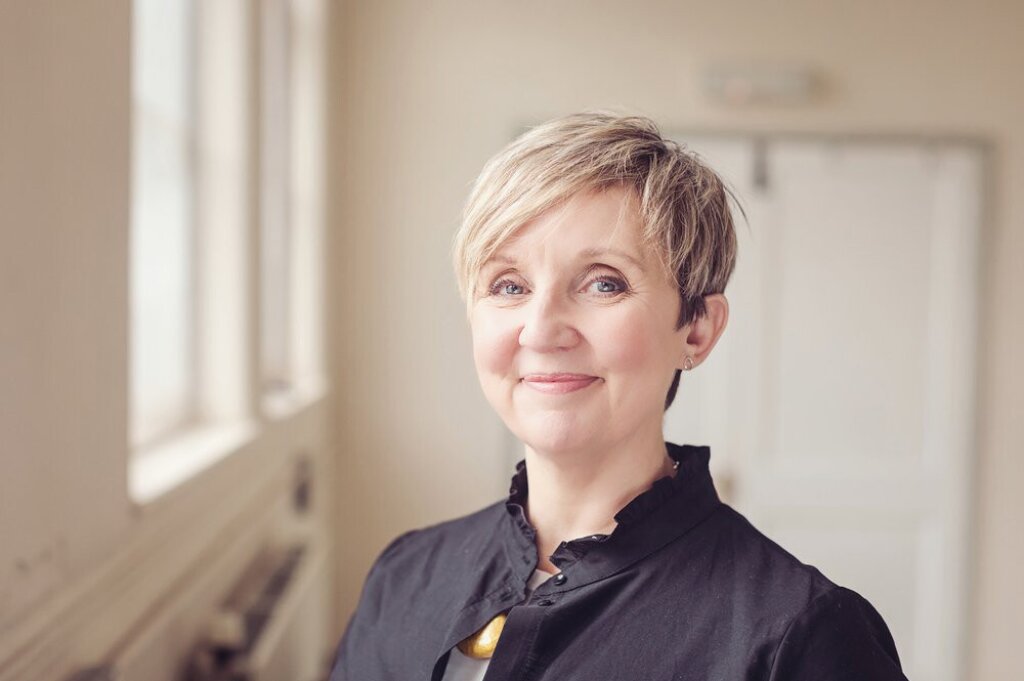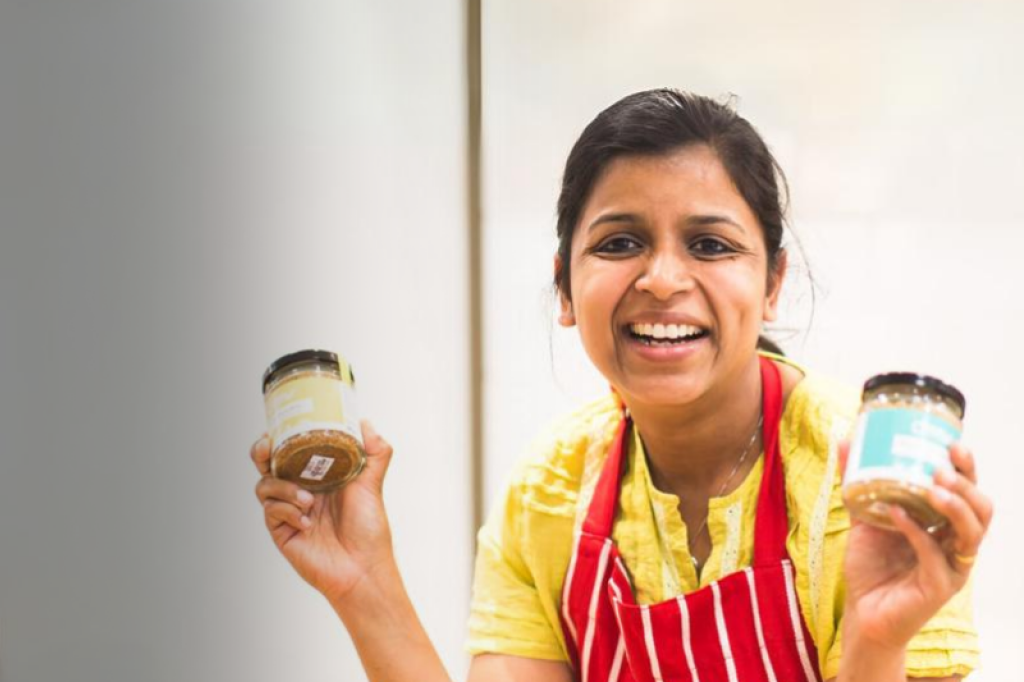Indulgence Jewellery can be found in gift shops, garden centres and department stores across the UK, with the brand believing the high street still has a prosperous future. Scott Medd joined The Productivity Programme with hopes of generating more sales and restoring revenue to its pre-pandemic level.
A number of clients closed during the pandemic, Scott’s goals when he started the programme were simple; get new business and increase turnover.
We’ll be following Buckingham Jewellery’s journey with their board for six months, and will keep this page updated with their progress.
Getting advice from people who understand
Scott admitted that he had hesitations about the board format, having only been through one-to-one mentorship programmes in the past:
“I was interested about how it would work if there was a difference of opinion, would it mean that some people dominated it and other people would sit back a bit. But it actually was just really good.”
Scott was keen to get personalised advice, since Buckingham’s business model isn’t like typical jewellery brands.
“When people first hear about our business, the first thing they always say is ‘you need to be online, why aren’t you doing online’. But my feeling is that there are people doing that very well, and it’s a different business to what we do and what we’re experts at. So, what I want to do is have the conversation about how we grow our specific business.”
Scott added that he appreciated hearing from people who understood the nuances of running a business. “A lot of people come in and say, ‘this is what you need to do, get on and do it’. Whereas [the board] appreciate change is a delicate thing to do,” he explained.
Having board members from different backgrounds enhanced the experience. “Two of the board have coaching businesses, and somebody else’s experience was in finance. And it helped having that difference of opinion, it opened up the discussion more than just having someone give you feedback. It’s a conversation,” Scott explained.
Scott credited the hard work of his board and Be the Business’s support staff with making it easy to follow-up on the sessions by providing call recordings and summaries.
Having patience is the key to success
Scott’s most important takeaway from the first stage is to have patience. “I personally can want things resolved straight away, but take time, be patient, keep working to build trust. Trusting the process is the sort of thing you read, but living it is very different to knowing it!”
He added that being open-minded is essential to success. “Mentorship isn’t about providing the answers. Give the board as much information as you can, allow them to know your business, so they can give more back. And by talking it out, it helps you to improve your story and sell your business.”
Improving people as a team
Having taken the board’s advice and made changes to some of the processes in the business, Scott now wants to focus on developing the team.
“As a small business which has been running for a long time, personal development plans felt alien to us. But I want to facilitate open discussions about how we approach business. They have been doing it for a long time and know what they’re doing, but what I’ve said is that we can all always be learning and developing,” he explained.
“One of the board has said we can set up a call outside of the board meetings to work on bringing everyone in on that, because I don’t want to always just be giving my view and although I do really want to do it, I’m apprehensive about doing it.”
Scott said that the board member he worked with introduced him to a technique that has helped to understand his team, and customers too.
“One of the things we spoke about was the empathy canvas model, thinking about what other people are thinking, and there’s several questions around that. We all say we want to put ourselves in customers’ shoes but this is a platform to get ideas down together and pin down what our customers are experiencing,” he explained.
Having space to discuss issues
His second board meeting was also an opportunity for Scott to discuss sensitive issues he was facing in the business, and have the board validate the steps he’d already taken while suggesting what to do next.
“It was weighing heavy on me, and it was really helpful to get inside certain questions. It’s good to talk through certain issues to get a completely different perspective, so sharing with external people is quite good for that process, I think,” he explained.
Gaining business confidence
In their final meeting, Scott and the board discussed the success of the employee development plan process so far.
“We had the sales team in for a range meeting, and decided to have the meeting after that to talk about their development with prospecting. I’d been really hesitant to use the tools the board had given me because it’s not what we normally do at all, and sometimes you can appear patronising to people. But it was a success and I was really pleased,” Scott said.
He reflected that the board programme has had a big impact on his confidence overall.
“I can’t speak highly enough of not just the tools but the support the board gave. They gave me confidence in how I was going to handle it and bring everyone on board. There’s that element of impostor syndrome in a family business, but working through this process shows that there is proof and success in what you’ve been doing”.
A range of expertise
Scott said he would tell any entrepreneur who has the opportunity that the The Productivity Programme is definitely something to try to be a part of.
“The range of people and difference of opinion is a really valuable tool. It helps you to get clarity on who you are and what your business does when talking to a group, because it’s almost like you’re pitching your business, so that was a good process to get me comfortable with doing that.”
Implementing performance evaluations
Following the board’s guidance, Buckingham Jewellery implemented individual and team development plans, with strong results.
“We hadn’t done that sort of thing before, so I was nervous but it was well received. We need to follow up with another one because I do think it was really beneficial,” Scott said.
The value of time management
Reflecting on The Productivity Programme, the most important thing Scott learned from the board was the value of a founder’s time.
“A big thing that came out of the board meetings was that I’ve got to dedicate a load of my time to moving the business forward, and at the moment, I’m too caught up in the day to day. It’s something people talk about a lot, but that’s a big takeaway – to spend less time working in the business, and more time working on the business,” he explained.
Achieving this resolution involved a mindset shift and a practical evaluation of Scott’s current ways of working.
“I’ve been trying to carve out specific times in the week. An exercise from the board was to write down what I’m doing every day, then look at those bits and see where I’m putting in too much time,” he said.
“The biggest challenge has been letting go of certain aspects of the business and passing them on to the team we have here, who are fantastic. It takes up more time to train someone, but we’re already starting to see the benefits. I have a stake in the ground that by April, I need to be more hands off, and this process has really helped me with that.
“The main lesson learned is to step back and look at the bigger picture, which the board was very good at making me do.”
Do you think your business could benefit from an advisory board of four experienced business professionals? We can build you one, as part of a free six-month programme of personalised support.



